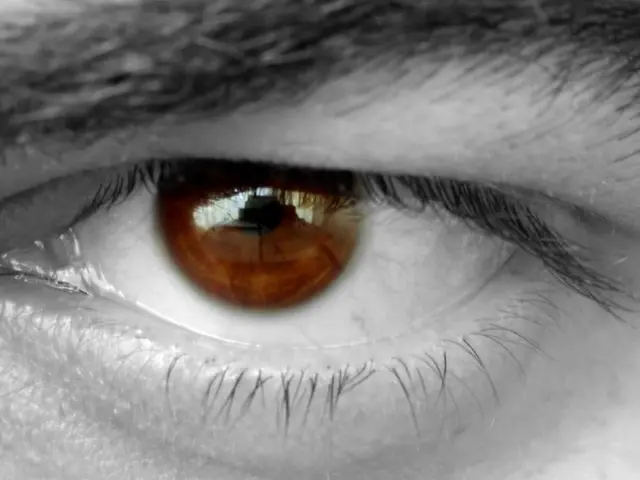Essential Information on Migraines Causing Tinnitus (Ringing in Ears)
Feeling a constant buzz in your ears alongside headaches, vertigo, and nausea? It could be vestibular migraine causing the ruckus. This guide explains the connections between these common conditions and what you can do to feel better.
Migraines usually involve more than just a nasty headache—they may bring on nausea, weakness, sensitivity to light and sound. But what if you're experiencing these symptoms alongside ringing in your ears? There might be a connection.
Vestibular migraines are a type that's frequently associated with this pesky ear ringing, also known as tinnitus. When your tinnitus is caused by vestibular migraines, you may experience light sensitivity, vertigo, and pressure in your head and ears.
Can migraines really cause tinnitus?
Absolutely! A migraine attack can trigger tinnitus or occur alongside it.
So, why the heck is this happening?
Vestibular migraines are one of the most common reasons you might experience tinnitus and migraines together. This combination affects around 1-3% of the population, and up to 30% of reported dizziness can be attributed to vestibular migraines.
Doctors and researchers haven't quite figured out the exact link between migraines and tinnitus, but here are some possible reasons you might hear that buzzing in your ears during a migraine attack:
- Altered sensory information processing: Researchers have noticed that more severe headaches seem to cause tinnitus. This might be because your brain gets so bogged down that it can't properly handle sensory input. Your auditory pathway might try to overcompensate for this, eventually leading to hearing a ringing or buzzing that isn't actually there.
- Misfired electric messages: Some experts believe spontaneous abnormal neuron firing is responsible for tinnitus during a migraine attack. Others think it might be a neurological pain response.
- Outside factors: Migraines may be triggered by stress, sleep issues, certain foods, depression, or anxiety. These triggers can also possibly lead to tinnitus. However, tinnitus can also indicate other conditions, so it's important to get checked out by a healthcare provider.
What are the other signs of vestibular migraine?
Different types of migraines may cause tinnitus, but vestibular migraines are the most common culprit. Here are some other signs of vestibular migraine:
- Vertigo
- Extreme dizziness
- Motion sickness (nausea, vomiting)
- Sensitivity to sound
- Sensitivity to light
- Visual disturbances (like flashing lights, blurry spots, or shimmering lines)
What if my migraines also involve blurry vision? I have an ocular migraine, right?
An ocular migraine is a migraine that causes visual disturbances such as seeing stars, blurry vision, or even a temporary visual blackout. It usually does not lead to tinnitus.
How do I get a diagnosis?
Dealing with frequent migraines with tinnitus? It's time to chat with your doc! Your healthcare provider may refer you to a neurologist, a headache specialist, or an ear, nose, and throat doctor (ENT) to help diagnose the issue. Make sure to advocate for yourself by clearly voicing your symptoms and needs.
At your appointment, be prepared to discuss your personal and family medical history, as well as the frequency and severity of your symptoms. Your doctor may perform a physical exam to evaluate your speech, mental clarity, coordination, reflexes, and more. For a thorough evaluation, they might also order additional tests such as bloodwork, imaging tests, or another type of examination.
For a vestibular migraine diagnosis, your doctor will likely assess whether you have current or past migraine episodes, moderate-to-severe vestibular symptoms that last between 5 minutes and 72 hours, at least half of your ear ringing episodes align with a migraine attack, visual disturbances, or sensitivity to light or sound, and at least 5 instances of ringing in your ears, with or without a headache.
What if it's more than just migraines?
Vestibular migraine isn't the only condition that can lead to tinnitus. You may also have early hearing loss, sinus or ear infections, Meniere's disease, thyroid problems, heart or blood vessel diseases, brain tumors, or fluid leak deep inside your ear. If a neurologist can't figure out the reason for your tinnitus, they may refer you to an ENT or another specialist.
What's the treatment plan?
Your treatment plan will depend on your specific diagnosis and unique circumstances. For migraines with tinnitus, a combination of pharmacological and nonpharmacological treatments may be recommended:
Home remedies
- Avoiding migraine triggers such as alcohol, caffeine, and salty foods
- Sticking to a regular sleep schedule
- Staying hydrated
- Practicing stress management
- Using a white noise machine to drown out tinnitus
- Seeking cognitive-behavioral therapy
Migraine treatment
- Beta-blockers (like propranolol or metoprolol)
- Calcium channel blockers
- Tricyclic antidepressants (like amitriptyline)
- SSRIs or SNRIs (like venlafaxine)
- Topiramate
- Acetazolamide
- Lamotrigine
Tinnitus treatment
If your doctor rules out migraines, they might suggest treatment specifically for tinnitus:
- Hearing aids
- Portable sound generators
- Acoustic neural stimulation
- Antidepressants or anti-anxiety medications
Can I prevent severe tinnitus and migraines?
To reduce the likelihood of tinnitus and migraines, try some of these tips:
- Maintain a consistent sleep schedule
- Stay hydrated
- Exercise regularly
- Avoid salty foods
- Identify and steer clear of your migraine triggers
There are medications available for managing chronic tinnitus and vestibular migraines. If your migraines are interfering with your life, talk to your doctor about preventative medications or lifestyle changes.
Should I see a doctor?
If frequent migraines with tinnitus are negatively affecting your quality of life, it's important to see a doctor. While migraines can't be cured, there are many ways to manage them effectively.
Whether or not you have a migraine diagnosis, an episode of tinnitus requires a call to your healthcare provider. A proper evaluation can help you access treatment options for both your migraines and tinnitus.
- The likelihood of experiencing tinnitus, in addition to migraines, can be increased due to vestibular migraines.
- Tinnitus may be a symptom of vestibular migraines, which can affect up to 30% of reported dizziness cases.
- If you have a creditline and are experiencing migraines with tinnitus, it's recommended to consult a healthcare provider for a diagnosis and treatment options.
- To manage the likelihood of both tinnitus and severe migraines, consider maintaining a consistent sleep schedule, staying hydrated, exercising regularly, avoiding salty foods, and identifying and avoiding migraine triggers.








